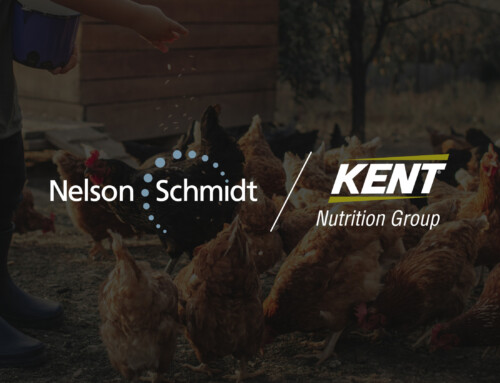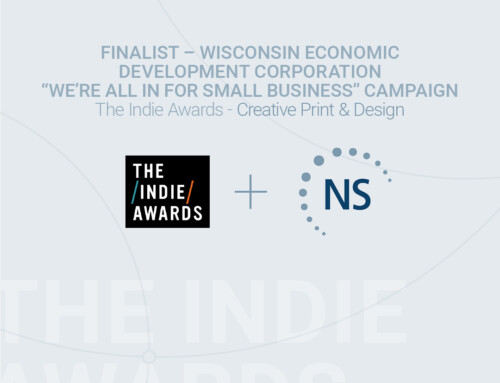Truth is, your business is not unique. Depending on your industry, there are likely several to hundreds of other organizations like yours selling a similar product. This is not a secret. It’s why marketing teams exist. To stand out from the competition, your marketing needs to inspire a decision. From Simon Sinek’s TED Talk on his golden circle theory, we learn that humans communicate from the inside, outwards, and there are two parts of the brain responsible for communication.
While one part of the brain is responsible for understanding language, logic and reason, the decision-making part of the brain is concerned with emotion. People respond to why you do something rather than what that something is. The rational and emotional balance necessary for making purchase decisions is why we identify as considered purchase marketers, but I digress. This isn’t about our stance on considered purchases versus impulse buys (but you can read all about that here, here and here). This post is about marketing “sustainability”. Why? Because sustainability marketing is an approach your organization can utilize to standout from your competition and I’m going to use Simon Sinek’s golden circle to explain it.

Simply put, sustainable marketing is the adoption of sustainable business practices that create better businesses, better relationships and a better world1. These initiatives serve as a connecting point between corporate responsibility and profitability. Sustainability is no longer a buzzword. Unlike most trends, this one is here to stay. Every industry seems to be addressing sustainability, from the impulse buy consumer brands like fashion and food to considered purchase companies in the manufacturing and healthcare industries. If your company is taking measures towards sustainability, it’s time to incorporate that into your marketing practices.
WHY should I incorporate sustainability messages into my marketing plan?
(Your Purpose)
Sustainability practices are more than just an “added bonus” to consumers, many are considering sustainability with their purchase decisions. According to a recent, international study by Unilever, one-third of consumers choose to buy brands that have a positive environmental or social impact2; and this behavior is only going to increase. In 2015, 91% of American’s surveyed said they have a more positive image of companies that support sustainable practices and 87% said they trust the company more and have more loyalty to the organization. If you’re reading this thinking, “my Considered Purchase product is not focused on consumers, we’re a B2B business,” don’t turn away just yet.
B2B buyers care about sustainability too. So often in the B2B market, marketers rely solely on using rationale to attract buyers and the emotional state of the customer gets overlooked. According to a 2016 Gallup Poll, 71% of B2B customers do not feel engaged with their B2B suppliers4. Marketers can use sustainability initiatives to close this gap. B2B companies can engage with their B2B suppliers by showing their commitment to sustainability.
HOW can I communicate my organization’s sustainability efforts?
(Your Process)
First, look at what your company is doing to maximize sustainable efforts. Chances are, your organization is applying some form of sustainability initiatives already. Does your company have a recycling program? Have you recently cut back on energy or water consumption? What green practices are your organization committed to that will allow you to create a sustainability marketing campaign?
It is important to note that this is not a spin. As mentioned in the beginning, people buy into why you do what you do. Customers will see right through phony, vague claims about sustainability. Educate the public on what specific actions your company is taking to reduce environmental impact and why these actions make a difference. If possible, align your company with a green organization for further accreditation.
If your organization has yet to incorporate social and environmental practices, learn what areas you could make improvements. While sustainability is a hot topic for marketing, becoming more eco-friendly can lower costs for your business as well. Better efficiency and sustainability typically leads to faster, smarter and less costly production. Only once those changes have been applied can you form your marketing strategy around sustainability. At that step is when you’re looking to make sure all of your communications efforts highlight the sustainability practices your organization is doing.
WHAT will Sustainability Marketing do for your business?
(Your Result)
Using your marketing approach to highlight the effort your business is taking to lessen its ecological footprint raises your organization above the competition. Whether you’re marketing to consumers, vendors or suppliers, more people care about sustainability than ever before. Your buyers will not only be people who need your product, but they believe in what you do. That belief strengthens the relationship, builds trust, and creates a loyalty to your product above any others that aren’t providing the same.
Get started today! As experts in sustainability marketing as applied to the water industry, the team at Nelson Schmidt has the tools necessary to lead and guide your organization’s green marketing efforts. For more information on our experiences in the water industry and how we can address your marketing needs, check out some of our work on the water expertise page and fill out a contact form today.
4 http://news.gallup.com/reports/187877/b2b-report-2016.aspx
Originally Published 2017






